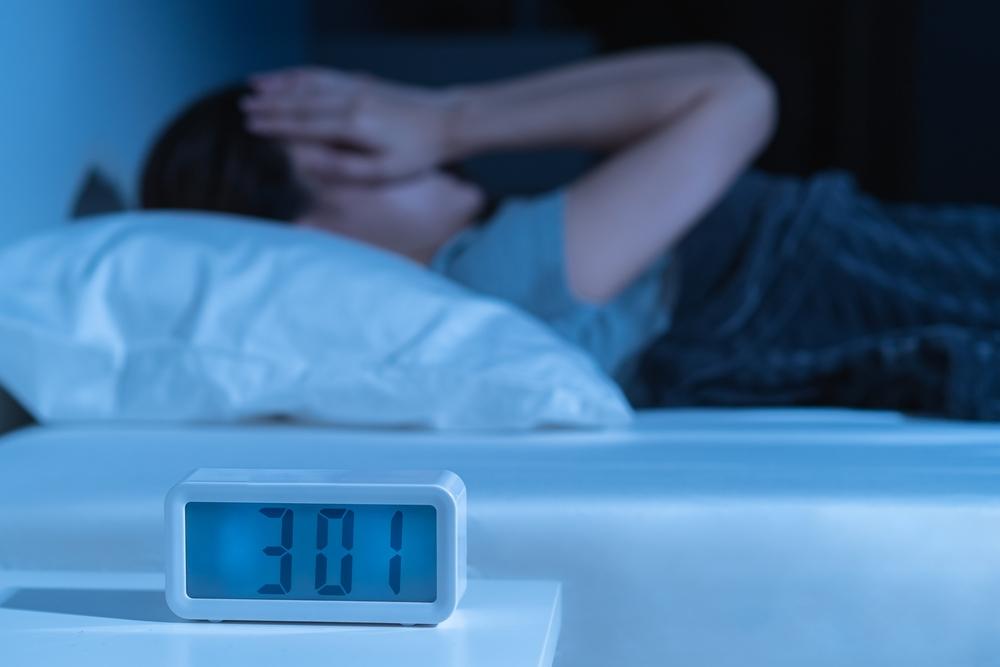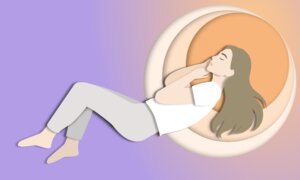With the widespread use of electronic devices and social media, coupled with work-related stress, sleep disorders have become increasingly common among both teenagers and adults. Numerous studies have shown that sleep disorders can negatively impact brain development and mental health in teenagers, while increasing the risk of chronic conditions in adults, including autoimmune diseases, coronary heart disease, and stroke.
Generally, it is recommended that teenagers aged 13 to 18 get eight to 10 hours of sleep per day, while adults should aim for at least seven hours. However, data from the U.S. National Council on Aging shows that more than one-third of Americans report getting less than seven hours of sleep within a 24-hour period. Around 30 percent of adults experience symptoms of insomnia, with 10 percent reporting that insomnia affects their daily activities.
Adequate, high-quality sleep is crucial for overall well-being. Sleep disorders have been shown to be associated with a lower quality of life and an increased risk of diabetes, heart disease, and cancer.
Increased Risk of Cancer
A
22-year follow-up study of more than 100,000 people found that women who worked in shifts for 15 years or more and slept no more than five hours per night had a 50 percent higher risk of developing colorectal cancer. Conversely, the study also found that men who slept nine hours or more per night had a 35 percent higher risk of colorectal cancer compared to those who slept seven hours.
Another study showed that older men who slept fewer hours had a higher risk of stomach cancer compared to those who slept seven to eight hours per night.
The body’s biological clock regulates sleep along with thousands of other functions. When disrupted, it may increase the risk of developing breast, colon, ovarian, and prostate cancers, according to an article on the Johns Hopkins Medicine website. Working night shifts for years, especially with nighttime light exposure, can lower melatonin levels and promote cancer cell growth.
Increased Risk of Autoimmune Diseases
Sleep has a significant impact on the endocrine, metabolic, and immune systems. Regular sleep is essential for maintaining immune function, while inadequate sleep can disrupt the immune system, triggering excessive inflammatory responses. This disruption increases the risk of infections, exacerbation of health conditions, and inflammation-related chronic diseases.
The relationship between sleep and immune system function is bidirectional: patients with autoimmune diseases often experience sleep disorders, and immune therapy can improve their sleep quality. A population-based cohort study indicated that subjects with sleep disorders had a 23 percent higher risk of developing herpes zoster (shingles) compared to the control group.
The incidence of shingles increased with age, with subjects aged 65 and older with sleep disorders, having highest risk of developing shingles, with a risk 6.11 times greater than that of younger people under 35.
Another study showed that people who slept less than six hours per night had a reduced immune response to the hepatitis B vaccine compared to those who slept more than seven hours.
Increased Risk of Coronary Heart Disease
A 2003
prospective study conducted a 10-year follow-up on 71,617 women aged 45 to 65. After adjusting for potential confounding factors (including snoring, BMI, and smoking), the results showed that participants who reported sleeping five hours or less, six hours, and seven hours per night had a 45 percent, 18 percent, and 9 percent higher risk of coronary heart disease, respectively, compared to those who slept eight hours per night (the control group).
Participants who slept nine hours or more had a 38 percent higher risk of coronary heart disease compared to the control group.
The study highlighted that both short and long sleep durations are independent risk factors for coronary heart disease.
A 2018 prospective cohort study that examined 60,586 adults aged 40 years or older found that sleeping less than six hours per night was associated with a 13 percent increased risk of coronary heart disease.
In terms of sleep quality, poor sleep was linked to a 21 percent higher risk of coronary heart disease, while difficulty falling asleep or the use of sleeping pills or other medications raised the risk by 40 percent.
Increased Risk of Diabetes and Stroke
Recent research has shown that both short sleep duration (fewer than five to six hours per night) and long sleep duration (more than eight to nine hours per night) can increase the risk of diabetes and stroke.
A systematic review analyzed data from 15 studies involving 474,684 participants. Compared to those who slept seven to eight hours per night, people with shorter or longer sleep durations had a higher risk of coronary heart disease and stroke, according to the results.
A separate study involving 23,620 participants, followed over about eight years, found that those who slept less than six hours per night were twice as likely to have a stroke compared to those who slept seven to eight hours per night.
Effects of Sleep on Adolescent Mental Health
A
2023 study highlighted a “significant” association between insufficient sleep in adolescents and depressive symptoms, as well as suicidal thoughts and behaviors. The findings showed that adolescents who slept less than eight hours per night were more likely to experience feelings of sadness or hopelessness and were at higher risk of considering or planning suicide, compared to those who slept at least eight hours.
The study also found that adolescents who slept less than eight hours per night were nearly three times more likely to attempt suicide than those who slept nine hours or more.
The researchers noted that sleep is a modifiable risk factor for adolescent mental health, suggesting that sleep should be considered a key factor in preventing adolescent suicide.
Impact of Sleep on Brain Development
Children need adequate sleep for healthy development. The recommended sleep duration is 10 to 13 hours per night for five-year-olds and nine to 12 hours for children aged six to nine.
A 2022 study found that children who don’t get enough sleep on school nights may have smaller brain areas. These areas help us with things like thinking, learning, and understanding our emotions.
The study’s findings suggest that insufficient sleep may affect not only the size and structure of children’s brains but also the brain circuits involved in emotional processing, Emily Merz, the study’s corresponding author and assistant professor in the Department of Psychology at Colorado State University, said in a press release. “This may possibly explain why reduced sleep leads to greater susceptibility to negative emotions.”
While most studies examine how sleep interferes with development focus on adolescents, this study highlights the importance of supporting children’s sleep health before they reach adolescence, she said.
Foods to Promote Restful Sleep
On the
“Health 1+1” program, Jessie Huang, a U.S.-based Traditional Chinese Medicine (TCM) practitioner and general physician, attributed common causes of sleep disorders to intense or negative emotions, such as joy, anger, worry, melancholy, grief, fear, and fright. Based on her clinical experience, she noted that sleep disorders are primarily related to imbalances in organ function, such as deficiencies in the heart and spleen. Factors like excessive rumination, fatigue, and feelings of anxiety can also contribute to insufficient sleep, she added.
Huang recommends the following six foods to help improve sleep disorders:
- Millet: Rich in tryptophan, an essential amino acid that serves as a precursor to serotonin and melatonin—two hormones crucial for sleep regulation.
- Lotus seeds: Known for their calming properties, lotus seeds contain gamma-aminobutyric acid (GABA), a compound recognized for promoting sleep.
- Lotus root: Contains minerals such as calcium, phosphorus, and iron, along with various vitamins. In TCM, it is valued for its cooling properties, blood-nourishing effects, and ability to alleviate irritability.
- Longan: Known for nurturing and calming effects. The ancient Chinese medical text Shen Nong Ben Cao Jing notes that longan benefits the five major organs—heart, liver, spleen, lungs, and kidneys—and promotes a calm, peaceful state of mind.
- Lily bulb: Recognized for its calming effects and ability to clear the mind. Huang recommends mixing 2 to 3 ounces (60 to 90 grams) of fresh lily bulb with 0.35 ounces (10 grams) of honey, steaming the mixture, and consuming it before bedtime.
- Celtuce: Offers calming and soothing effects. To promote better sleep, slice and cook celtuce with the skin on to make a broth and drink it before bedtime.
Some herbs mentioned in this article may be unfamiliar but are generally available in health food stores and Asian grocery stores.














